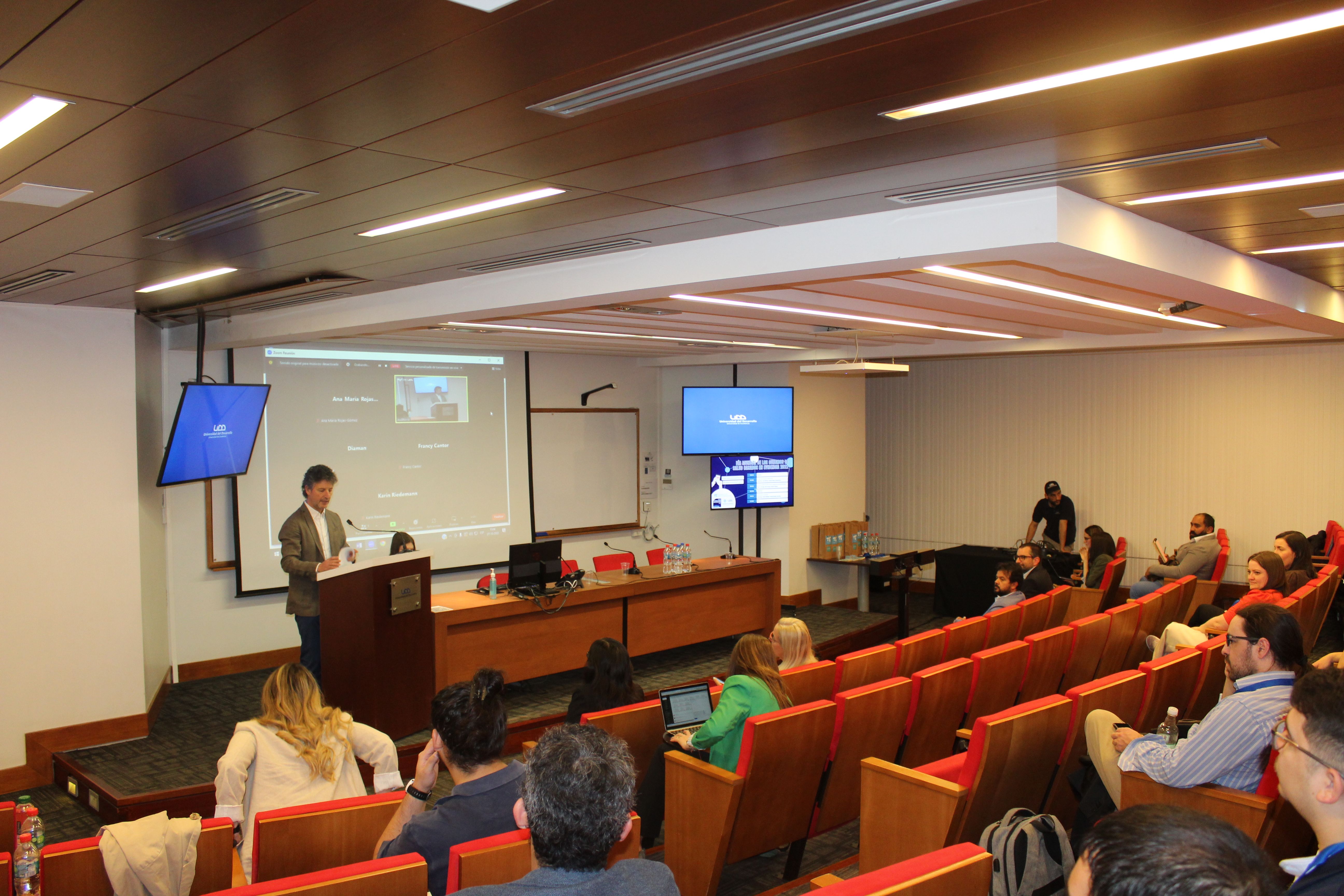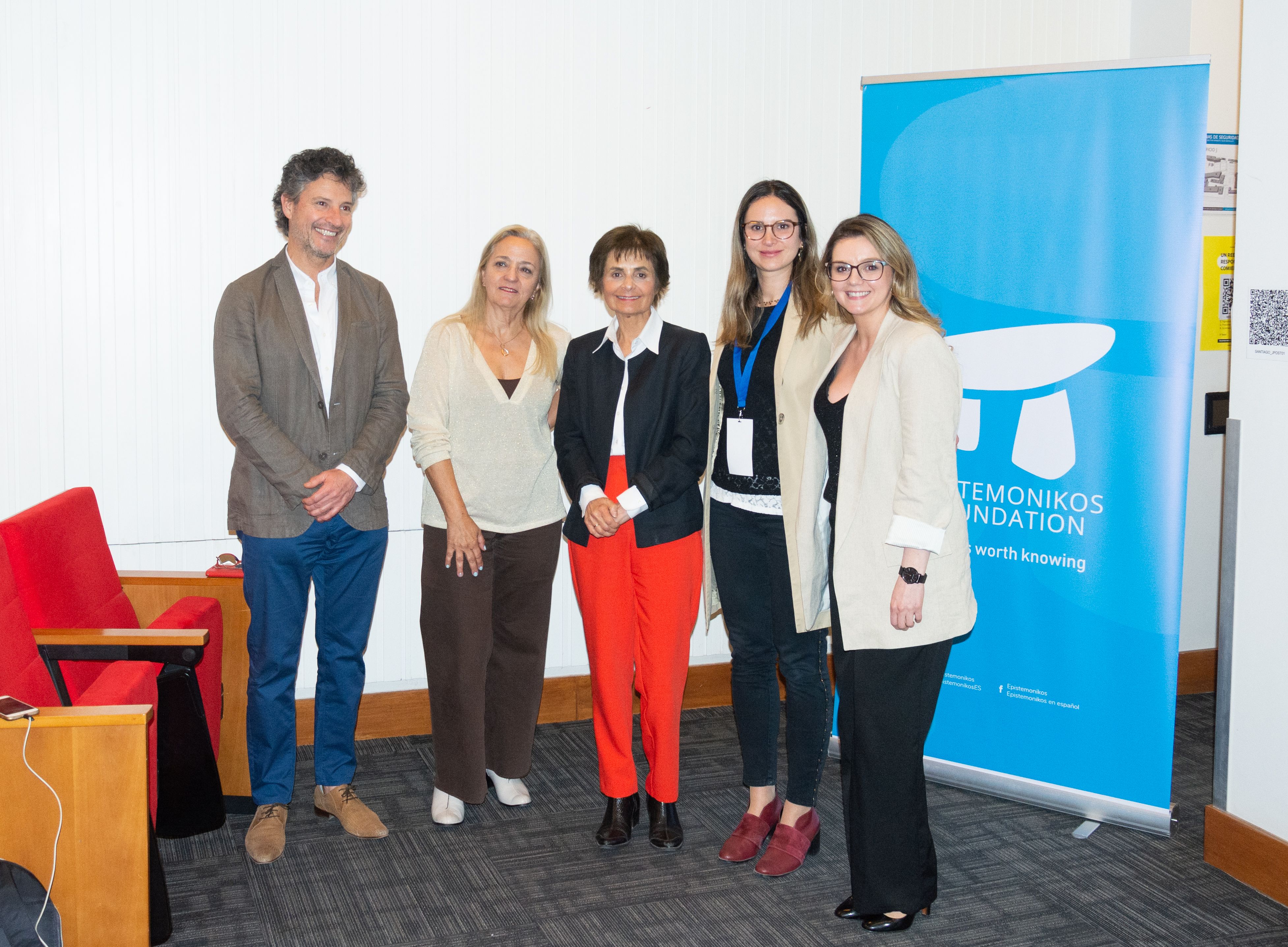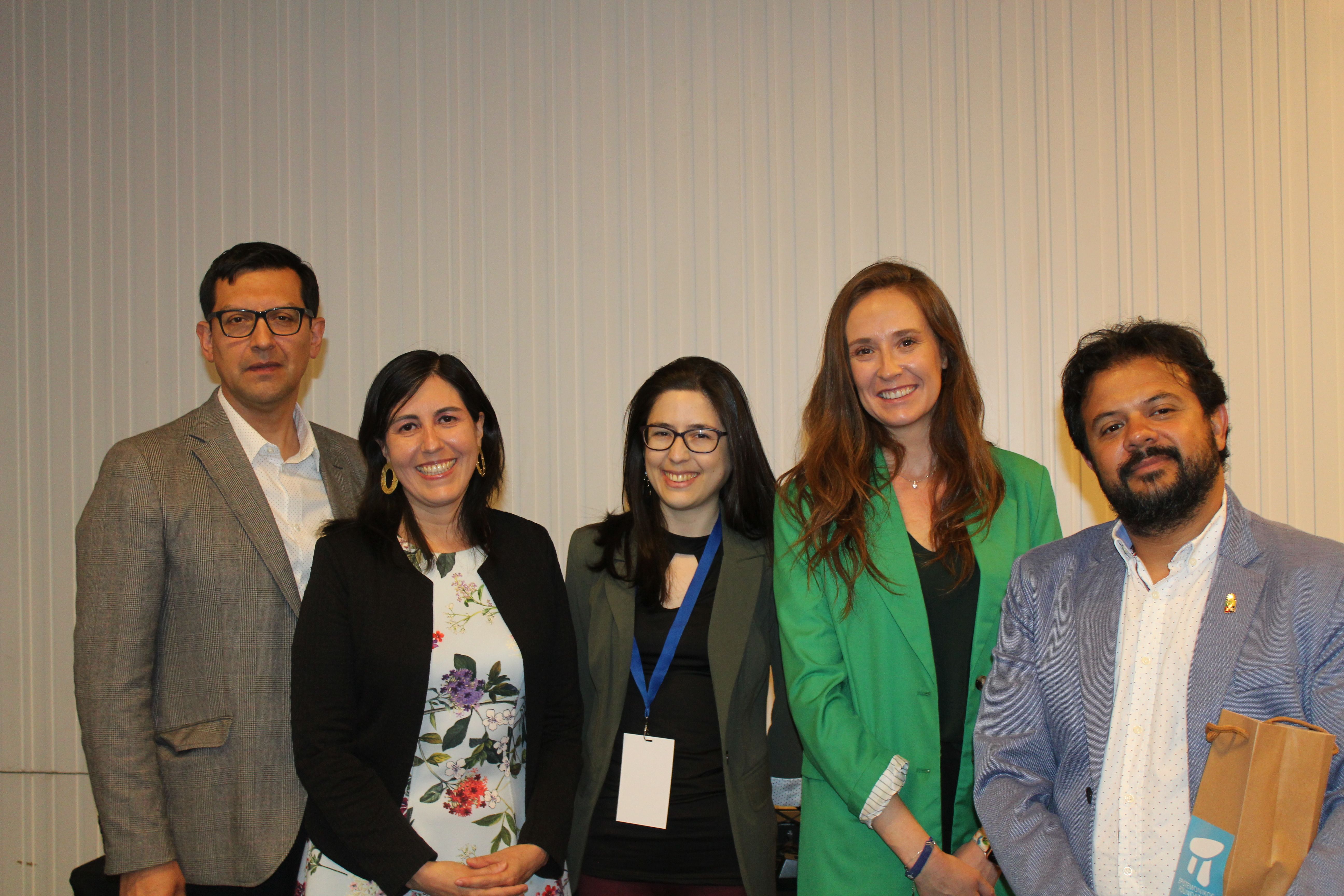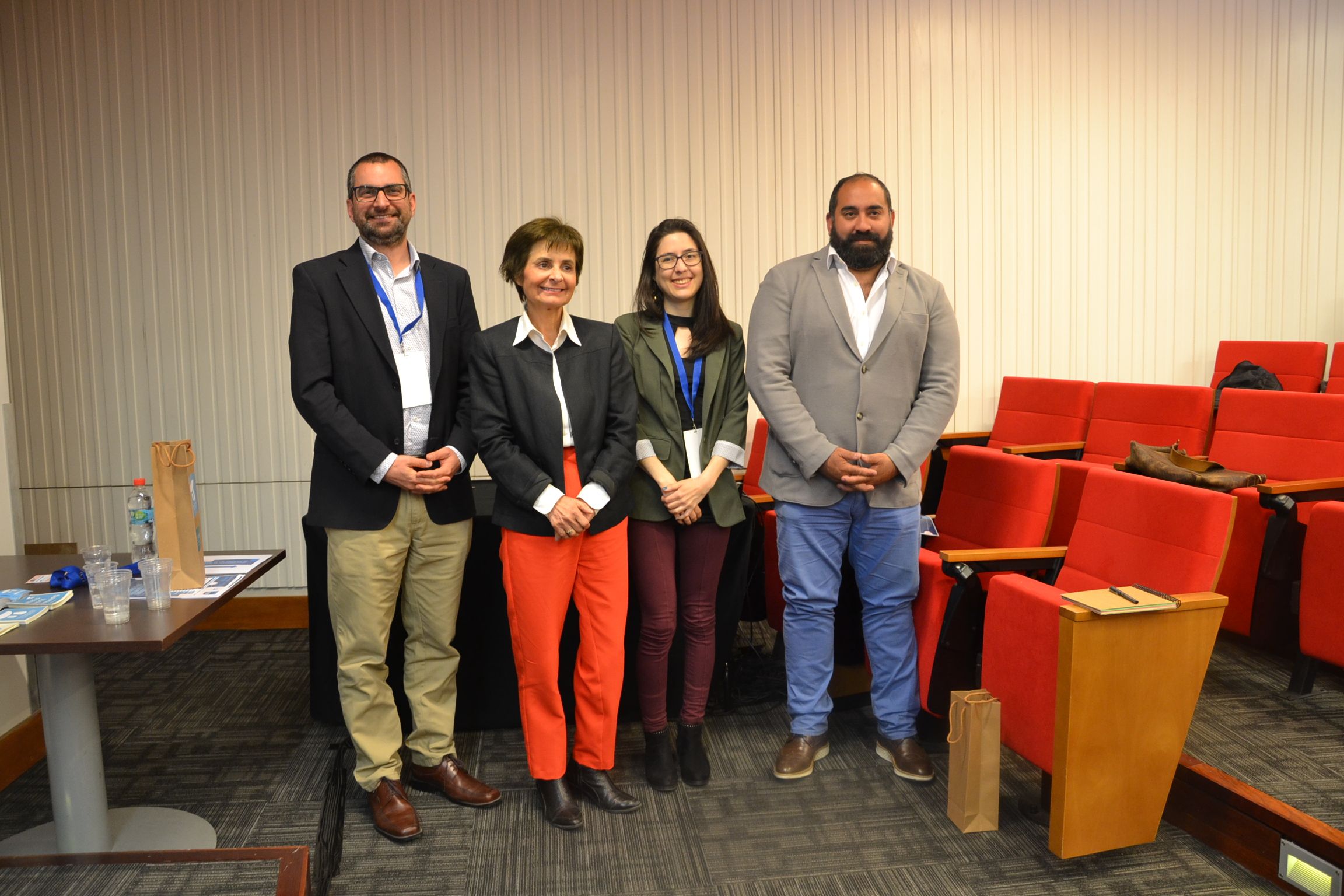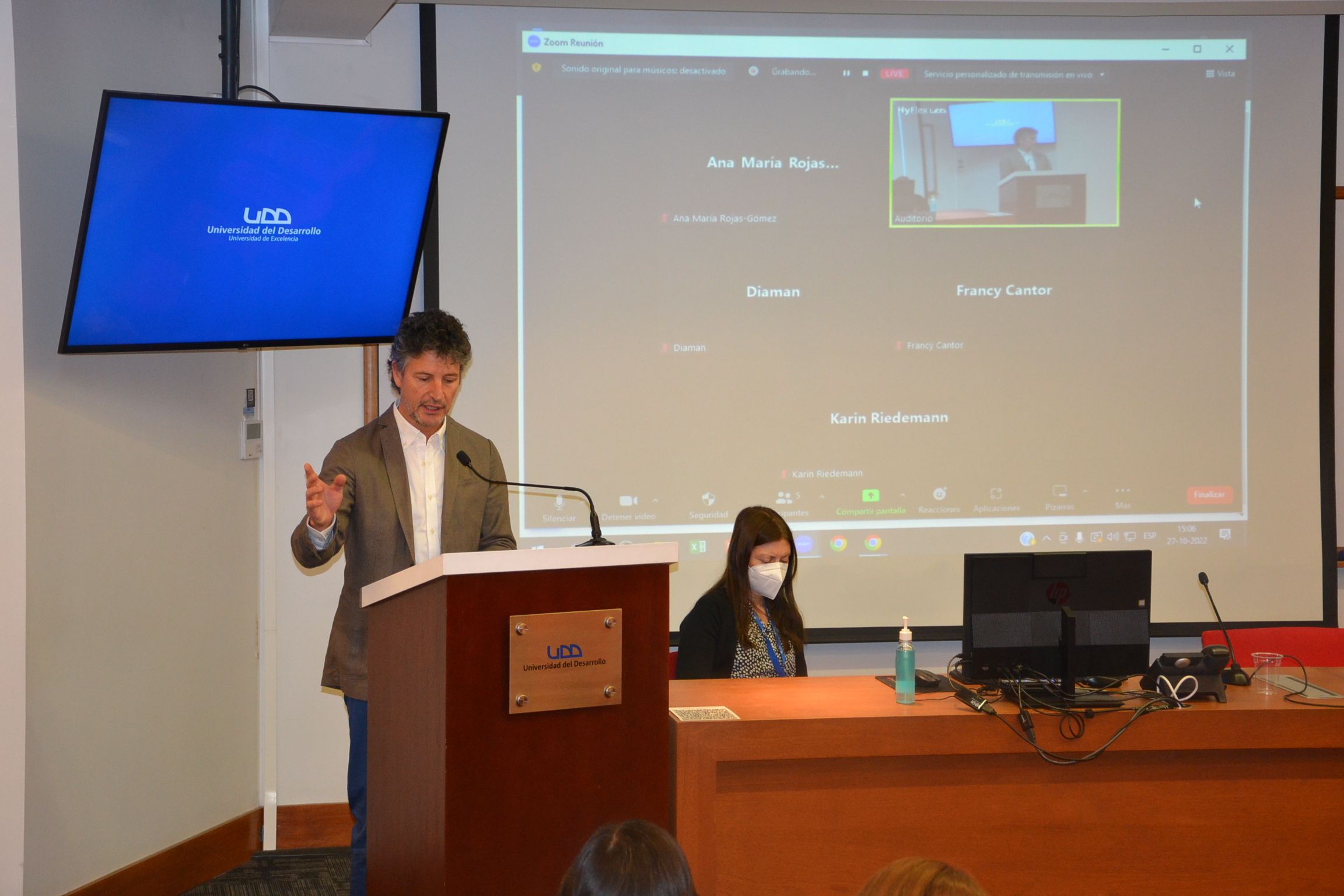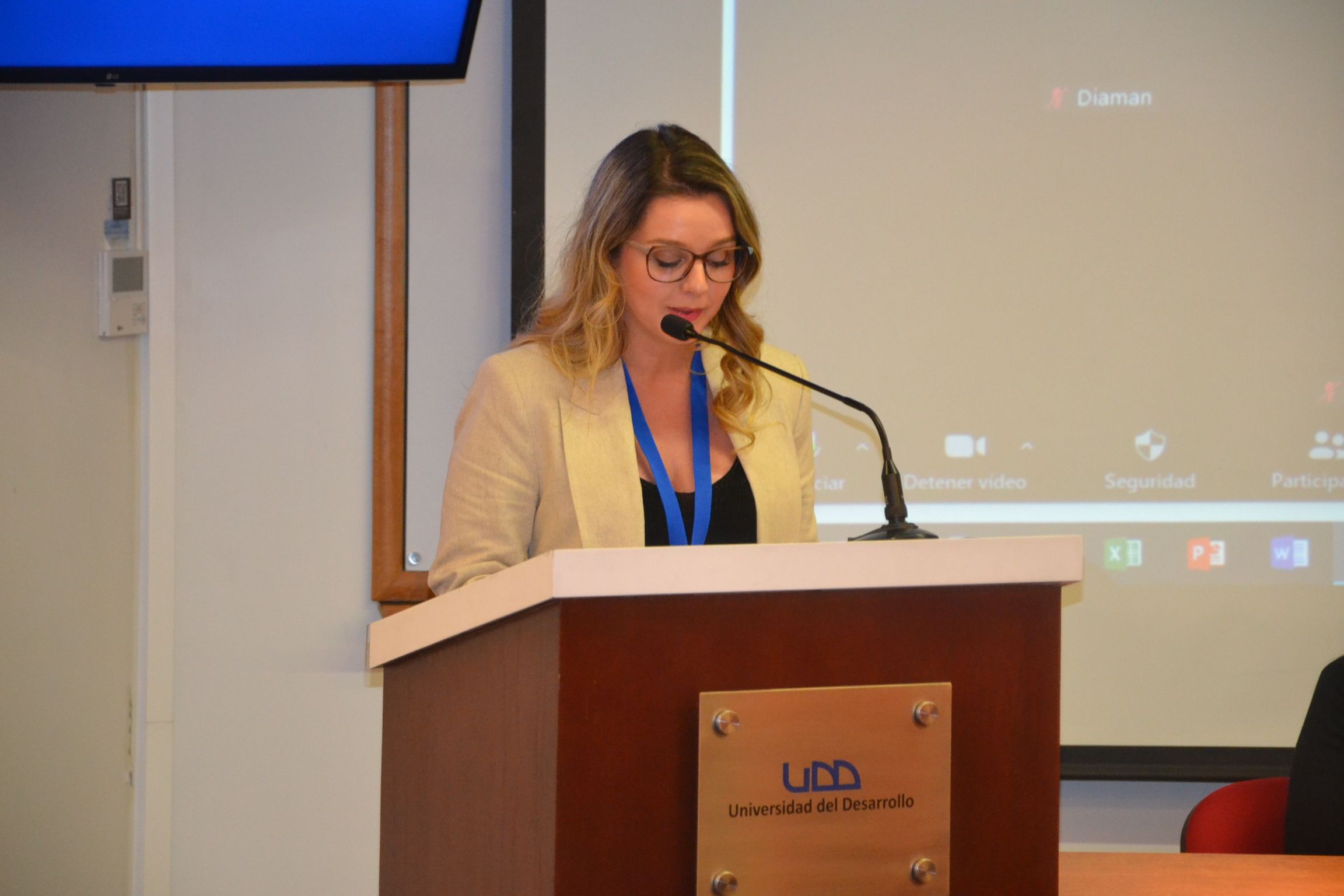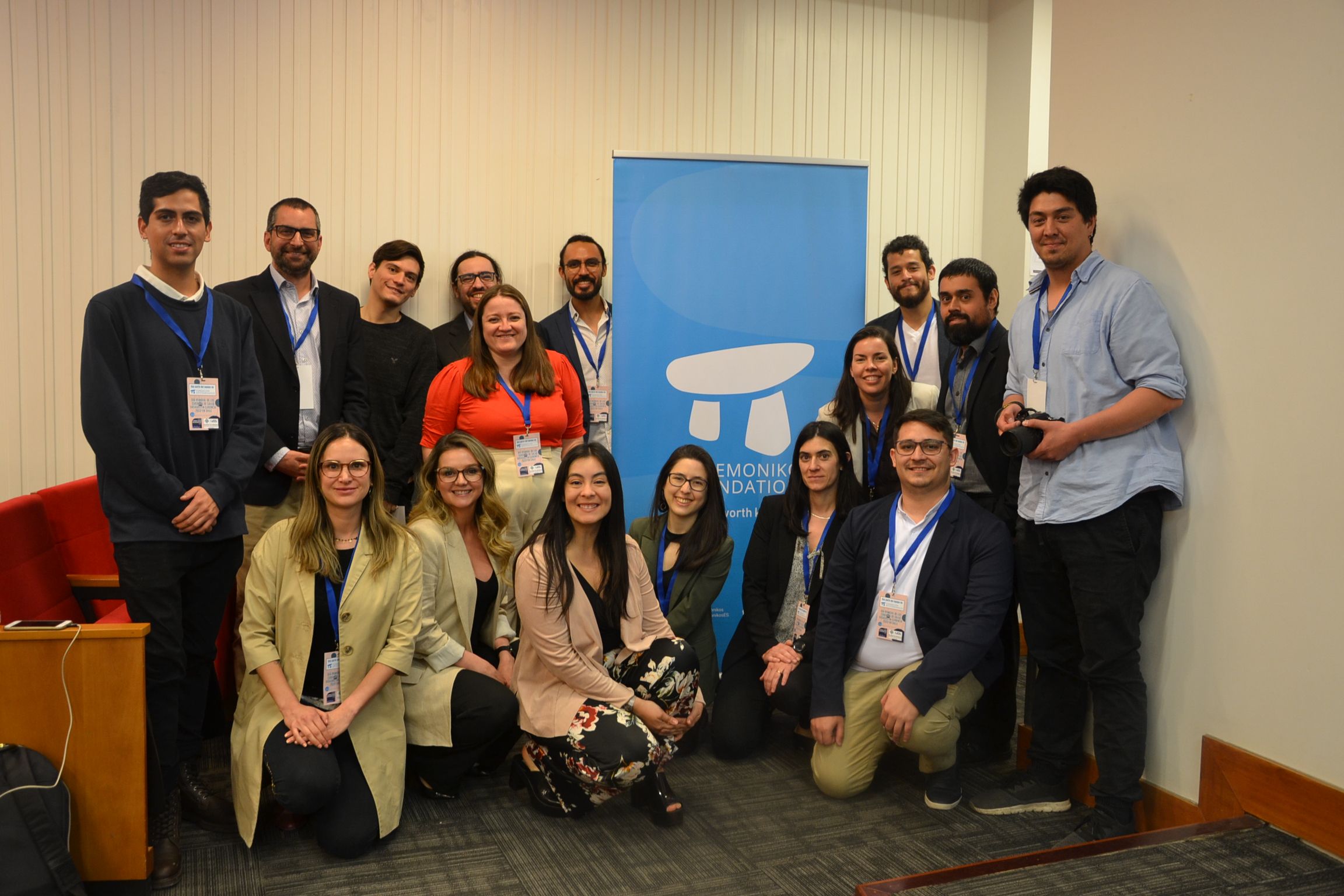
For the first time in Chile, we celebrated the World Evidence-Based Health Care Day with the Faculty of Medicine, Clínica Alemana, Universidad del Desarrollo.

15|NOVEMBER|2022
World Evidence-Based Health Care Day 2022
For the first time in Chile, we celebrated the World Evidence-Based Health Care Day with the Faculty of Medicine, Clínica Alemana, Universidad del Desarrollo.
On October 27th, Universidad del Desarrollo (UDD) hosted the celebration of the World Evidence-Based Health Care Day 2022 for the first time in Chile, an event organized by the Epistemonikos Foundation and the Faculty of Medicine, Clínica Alemana, Universidad del Desarrollo.
The gathering, featuring prominent national panelists, aimed to raise awareness about the necessity of informing decisions based on the best evidence, for the development of public policies, clinical practice, and healthcare decision-making. Through dialogues, three specific topics were addressed: The Importance of Generating Local Evidence, Use of Evidence in the COVID-19 Pandemic, and Partnerships For Purpose.
For the first dialogue session, participants included Dr. Yudith Preiss, a specialist in Clinical Nutrition; Dr. Vania Martínez, child and adolescent psychiatrist; Dr. Fernando Valiente, biochemist, microbiology doctor, and virology specialist; and Dr. Ricardo Castro, intensive care physician at the School of Medicine of the Pontifical Catholic University of Chile. Together, they concluded that collaboration in research enables the creation of more robust evidence, leading to better resource utilization and efforts optimization. This projection aims to enhance dialogue among involved stakeholders (research community, clinicians, implementation experts, legislators, and decision-makers) and to improve trust.
In the second dialogue session, participants included Dr. María Paz Bertoglia, President of the Chilean Society of Epidemiology and Head of the Immunization Program at the Ministry of Health of Chile; Dr. Jeannette Dabanch, infectious disease specialist and member of the Advisory Committee on Vaccines and Immunization Strategies (CAVEI); and Dr. Alexis Kalergis, biochemist and member of the Scientific Advisory Council for the Covid-19 Vaccine of the Ministry of Science, Technology, Knowledge, and Innovation of Chile. The experts concluded that Chile's response to the pandemic was rapid and collaborative, with science and medicine meeting the challenge.
Additionally, they indicated that evidence efficiently influenced decision-making. On the other hand, they highlighted that risk communication during the pandemic in the country was a weak point, as it's the responsibility of health authorities along with researchers and technicians to convey information affecting individuals' decisions, such as the use of masks and vaccination.
The third and final dialogue session, included Dr. Paula Daza, former Undersecretary of Public Health and current Director of the Center for Public Policy and Innovation in Health at UDD; Dr. Cristián Rebolledo, Head of the Program for Policies, Systems, and Management in Health at the School of Public Health of the University of Chile, and Head of the Department of Policy and Studies at the Chilean Medical Association (Colmed); and Dr. Gabriel Rada, Director and Co-founder of the Epistemonikos Foundation. The specialists pointed out that just as there are good alliances, there are also bad ones, and the keys to a successful and sustainable alliance are based on a strong prior relationship, trust, institutional framework, presence of all stakeholders, and multidisciplinarity.
They also stated that lessons learned from the pandemic should be applied, momentum should not be lost, and that the Ministry of Health should strengthen the institutionality of Health Technology Assessment (HTA) and evidence-based medicine, fostering better partnerships with the private and academic sectors.
To conclude, the organizing institutions of the event, the Epistemonikos Foundation and the Faculty of Medicine, Clínica Alemana, Universidad del Desarrollo, expressed their objective to provide a multi-sectoral dialogue space about the need to inform healthcare decision-making, develop public policies, and deliver evidence-based healthcare, emphasizing the significance of forging sustainable partnerships to achieve this purpose, all while focusing on the reality and needs of the country.
Some photographs of the event:
